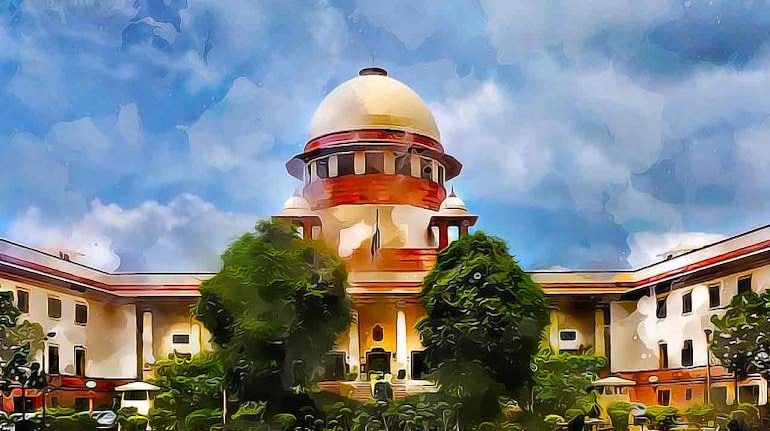



On August 2, a five-judge bench of the Supreme Court is scheduled to start hearing petitions challenging the constitutional validity of the abrogation of Article 370 by Parliament. The petitions are being taken up for final hearings four years after they were filed.
Chief Justice of India DY Chandrachud has indicated that the court will definitely hear these cases from August 2. Since the bench includes Justice Sanjay Kishan Kaul, who retires in December, a judgment in this case is also expected by then.
Moneycontrol explains what Article 370 is, why the government abrogated it, and how the matter reached the Supreme Court.
What is Article 370?
Article 370 of the Indian constitution had accorded special status to Jammu and Kashmir. The provision, which was enacted after the instrument of accession was signed by the Indian government and the Maharaja of Kashmir, restricted the powers of parliament with respect to the state.
The article accorded autonomy to the state and noted that the power of the parliament of India is limited with respect to Jammu and Kashmir. The article also specified that the President of India has the power to issue orders on whether provisions of the Constitution of India would be applicable to the state. The Indian parliament was obligated to hold consultations with the state government to pass any law that would be applicable to the state.
Also Read: PM Modi fulfilled Syama Prasad Mookerjee's dream by revoking Article 370: CM Adityanath
However, Article 370 also empowered the President of India to abrogate it with the consent of the constituent assembly of Jammu and Kashmir.
Why did the government abrogate Article 370?
In June 2018, Jammu and Kashmir came under governor’s rule after the state government collapsed. In November 2018, the governor dissolved the legislative assembly and paved the way for president’s rule in December 2018.
In August 2019, the president passed an order to amend Article 370, replacing the words ‘Constituent Assembly’ of the state with ‘Legislative Assembly.’
As per Article 370, the Central government had to take the consent of the constituent assembly to make provisions of the constitution applicable to the state. In its absence, the Central government or parliament had no restrictions on its powers. With Jammu and Kashmir under president’s rule, the power of the legislative assembly was with the parliament of India.
At the confluence of all these circumstances, the Union government removed the special status for Jammu and Kashmir and bifurcated it into the Union Territory of Jammu and Kashmir and the Union Territory of Ladakh. As a result, Article 370 stood abrogated.
Also Read: Abrogated Article 370, will bring Uniform Civil Code too: Amit Shah
The government defended the abrogation in an affidavit in the court, stating that the entire region of Jammu and Kashmir had witnessed an unprecedented era of peace, progress and prosperity, with street violence orchestrated by terrorists and secessionists becoming a thing of the past.
Referring to the "characteristic security situation" in the region, the Centre said organised stone-pelting incidents connected with the terrorism-separatist agenda, which were as high as 1,767 in 2018, had come down to zero in 2023 till date and the casualty of security personnel declined 65.9 percent in 2022 as compared to 2018.
How did the issue reach the Supreme Court?
The abrogation of Article 370 reached the Supreme Court almost immediately in 2019. Over 10 writ petitions were filed by political parties and NGOs such as the Jammu and Kashmir People’s Conference and the People’s Union for Civil Liberties, challenging the constitutional validity of the abrogation.
The petitioners argued that the abrogation violated constitutional procedure as the consent of the Jammu and Kashmir constituent assembly had to be taken before tampering with Article 370 and this was not done.
They contended that the act of abrogation was tantamount to amending the basic structure of the constitution, which parliament cannot touch. The petitioners urged the Supreme Court to refer the case to a seven-judge bench as it needed to answer a larger constitutional question. However, in March 2020, the apex court refused to do so and retained it with a five-judge bench.
After being in cold storage for three years, the apex court in June 2023 said it will start hearing the case soon. On July 11, the court informed the government and the writ petitioners that it would start hearing the petitions from August 2.
CJI DY Chandrachud has kept his calendar for August 2 free so that the case could be heard at length. He has refused requests to hear other cases that week, saying the court is keen to hear the challenges to the abrogation of Article 370.
The constitution bench that will hear the case comprise Chandrachud and Justices Kaul, Sanjiv Khanna, BR Gavai and Surya Kant. Justices Khanna, Gavai and Surya Kant are all in line to become the chief justices of the country.
Discover the latest Business News, Sensex, and Nifty updates. Obtain Personal Finance insights, tax queries, and expert opinions on Moneycontrol or download the Moneycontrol App to stay updated!
Find the best of Al News in one place, specially curated for you every weekend.
Stay on top of the latest tech trends and biggest startup news.